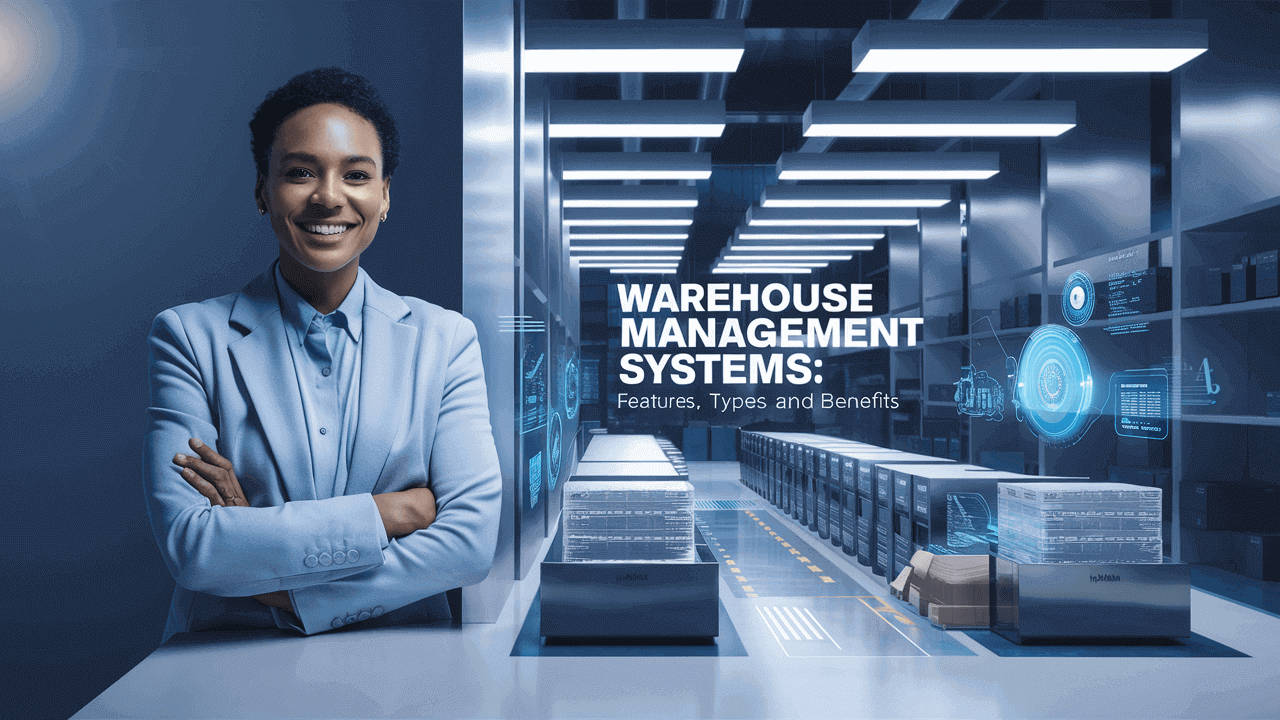Ever stopped to ask yourself, “What is supply chain management?” and why does everyone talk about it? Picture the bustling highway of global trade, where goods crisscross oceans and continents. Definitely, SCM is more than moving boxes from point A to point B. On the other hand, it’s about fusing people, process, technology, and strategy into one smooth rhythm. From strategic planning to the final customer smile, SCM powers it all. Therefore, for a sharp Logistics Manager or a daring entrepreneur, mastering SCM is a necessity for survival.
By the end of this read, you will understand your supply chain inside out. This blog explores its core meaning, how it operates, the common pitfalls, and the big wins that come with managing it right.

Jump ahead to
So, What is Supply Chain Management?
At its core, supply chain management is the art and science of overseeing the flow of goods, information, and finances from raw material sourcing to the final customer. In fact, it’s like a conductor of an orchestra. That means it ensures procurement, manufacturing, logistics, and customer service play in harmony.
But let’s pause here for a moment. Have you ever wondered why some companies thrive even during disruptions, while others stumble? The answer usually lies in how well they understand what is supply chain management and implement it with agility.
Key Components of SCM
Understanding what is supply chain management means breaking down its core components. These are the building blocks that every logistics manager monitors like a hawk.
- Planning – Forecasting demands, setting inventory levels, and aligning resources.
- Sourcing – Building strong relationships with suppliers while ensuring quality and cost efficiency.
- Manufacturing – Turning raw materials into finished goods with precision and speed.
- Logistics – Transporting, warehousing, and distributing goods.
- Return Management – Handling the returns of products, recycling, and refurbishing effectively.
- Technology – It is, in fact, utilizing ERP, AI, and IoT for info-centric decision-making.
Types of Supply Chain Management
Different businesses adopt different flavors of SCM, which depend upon industry and goals. Here are the key types:
- Lean SCM – Strips away waste to ensure only value-adding activities will remain.
- Agile SCM – Prioritizes speed and adaptability in volatile markets.
- Efficient SCM – Focuses on cost reduction through optimized operations.
- Flexible SCM – Balances efficiency with the ability to pivot quickly.
- Sustainable SCM – Embeds eco-friendly practices into every step.
- Global SCM – Manages cross-border complexity with precision.
- Digital SCM – Leverages AI, IoT, and analytics for real-time insights.
SCM Process At a Glance
Here is a simple table that unpacks the SCM process from start to end.
| Stage | What Happens Here | Why It Matters |
| Planning | Demand forecasting, capacity planning | Prevents overstocking and shortages |
| Sourcing | Supplier selection, contract negotiation | Affirms reliability and cost control |
| Manufacturing | Production scheduling, quality checks | Balances efficiency and quality |
| Delivery & Logistics | Warehousing, transport, distribution | Enhances customer satisfaction |
| Returns | Product recalls, recycling, repairs | Reduces waste and improves trust |
Have you noticed how interconnected each step is? That is where a Logistics Manager becomes the linchpin, organizing the flow to prevent bottlenecks.
Why is SCM so Important?
Still wondering what is supply chain management and why it matters? Here is the truth. A firm without a robust SCM is like a ship without a rudder. Hence, the benefits are simply too powerful to ignore.
- Cost savings – It is factual that efficiency in sourcing and transport reduces unnecessary spending.
- Customer Delight – Timely deliveries build trust and brand loyalty.
- Resilience – It is evident that strong SCM cushions businesses against disruptions like pandemics or trade restrictions.
- Competitive Advantage – Faster and smarter supply chains beat sluggish competitors.
- Sustainability – Eco-friendly practices in sourcing and logistics reduce carbon footprints.
You can imagine being able to promise your customers quick delivery even when global shipping lanes are clogged. That is the magic of constructive supply chain management.
The Role of a Logistics Manager
A Logistics Manager is often an unsung hero behind the scenes. Their role? To ensure that goods move like clockwork, costs stay under control, and customers remain satisfied.
Key Responsibilities include:
- Designing efficient transport routes.
- Negotiating with carriers and vendors.
- Monitoring warehouse performance.
- Managing budgets and cutting inefficiencies.
- Coordinating with production and sales teams.
In other words, they are the spiders at the center of the web. They are the ones who ensure that every thread in the supply chain is connected.
Let’s Talk Inventory Management
Let me ask you this. Have you ever walked into a store and wondered how the shelves are always stocked just in time without being overcrowded? That’s inventory management in action, a crucial part of SCM. Behind the scenes, supply chain teams predict demand, monitor stock levels, and coordinate replenishments like clockwork.
So next time when you ask yourself what is supply chain management, picture those perfectly filled shelves. Definitely, it’s not luck; it’s the result of precise forecasting and smart planning.
Benefits of Implementing SCM
Let’s dive deeper into tangible perks that businesses will receive by mastering supply chain management.
- Efficiency Gains – Streamlined processes mean faster turnaround times.
- Stronger Partnerships – Long-term supplier relationships ensure better deals and reliability.
- Data Insights – Real-time tracking tools give managers better control over the inventory.
- Flexibility – Organizations can pivot quickly when markets shift.
- Enhanced Profitability – Every dollar saved in logistics flows to the bottom line
- Customer Retention – Reliable services keep customers coming back.
- Sustainability Impact – Waste reduction and optimized routes aid in saving the planet.
- Scalability – A robust supply chain grows alongside the business.
Challenges in Supply Chain Management
It is a truth that every best supply chain hits roadblocks. Here are the most pressing challenges.
- Disruptions – Geopolitical issues, pandemics, and natural disasters halt operations.
- Supplier Risks – Dependence on single vendors increases vulnerability.
- Inventory Imbalances – Overstocking and shortages can bleed profits.
- Rising Costs – Transportation, labor, and raw material costs fluctuate wildly.
- Technology Gaps – Legacy systems hinder real-time visibility.
- Customer Expectations – Demand for cheap and faster delivery keeps soaring.
- Sustainability Pressures – Balancing green practices with profitability is tricky.
Supply Chain Management Software
Modern supply chains no longer work on guesswork. On the other hand, they thrive on software that turns complexity into clarity. Contemporary SCM solutions integrate every link of the chain. This includes ERP systems that unify finance and operations to inventory optimization tools powered by AI. Furthermore, smart platforms like TMS streamline transportation, while WMS ensures the precision of warehouses. Supplier portals build transparent partnerships, and analytical dashboards deliver real-time insights. Besides these, you can add automation tools to eradicate manual errors and cloud platforms for flexible scalability. Definitely, you have got a digital backbone that makes supply chains smarter and future-ready.
Final Thoughts
By now, the question, “What is supply chain management? “ should no longer be a puzzle. By all means, it is the backbone of modern business, connecting suppliers, manufacturers, logistics providers, and customers. With its process, benefits, and moreover the impact it has on business development, SCM keeps the ball rolling in a business. In this, a skilled logistics manager ensures that the firm is not caught napping when demand surges.
In addition, if you are looking to advance your career in SCM, a certification in Supply Chain Management can be the ace up your sleeve. It not only boosts your credibility but also empowers you with industry-recognized skills to bloom in any competitive context.
So the next time someone asks you, “What is supply chain management?”, you will know the answer. Perhaps, you can even inspire them to explore it further.
FAQs
What is supply chain management in simple terms?
Supply chain management is the coordination of people, processes, and technology to move goods from suppliers to customers. It ensures efficiency, cost savings, and customer satisfaction.
Why is SCM important for businesses?
SCM boosts efficiency, reduces costs, and builds resilience against disruptions. It also strengthens customer trust through timely deliveries.
What role does a Logistics Manager play in SCM?
A Logistics Manager oversees transport, warehousing, and distribution. They are the backbone of smooth supply chain operations.
What are the main challenges in SCM today?
In supply chain management, global disruptions, rising costs, and sustainability pressures pose major hurdles. Technology gaps and supplier risks also add complexity.
How does technology support SCM?
Digital tools like AI, IoT, and ERP provide real-time visibility and predictive insights. They transform traditional supply chains into agile, data-driven systems.
Can small businesses benefit from SCM?
Absolutely — SCM helps even small businesses control costs and improve customer service. Scalable digital solutions make it accessible for all.
What are the benefits of sustainable SCM?
Sustainable SCM reduces waste, lowers carbon footprints, and enhances brand reputation. It aligns profitability with responsibility.
Q8. Is SCM a good career choice?
Yes, SCM professionals are in high demand across industries. Roles like Supply Chain Analyst, Logistics Manager, and Operations Director offer excellent growth.



